Photo: Jonathan Hillyer
The Batts Pavilion project at the Lillian Anderson Arboretum for Kalamazoo College integrates a blend of sustainable, ecologically-sensitive design features that align with the Arboretum's conservation and educational mission. The pavilion includes enclosed spaces for classroom and research use, along with an open-air pavilion for public interaction and educational activities. The design repurposed a formerly degraded landscape, transforming it into a barrier-free pedestrian space, while utilizing site-harvested materials like red pines transported by oxen, emphasizing the project’s low-impact approach. The facility is fully off-grid, supported by a photovoltaic array and energy storage system, providing renewable energy for its electrical needs. Additional sustainable elements include a waterless composting toilet, Michigan-sourced cedar siding, and natural ventilation. These design features promote both environmental education and community engagement, while supporting physical and mental health by fostering a connection to the natural environment.
Kalamazoo, MI
Net Zero
1,600 sf
Mass-timber, Cultural Site, Academic, Nature Center, Net Zero
Sustainable Design Award
AIA Huron Valley
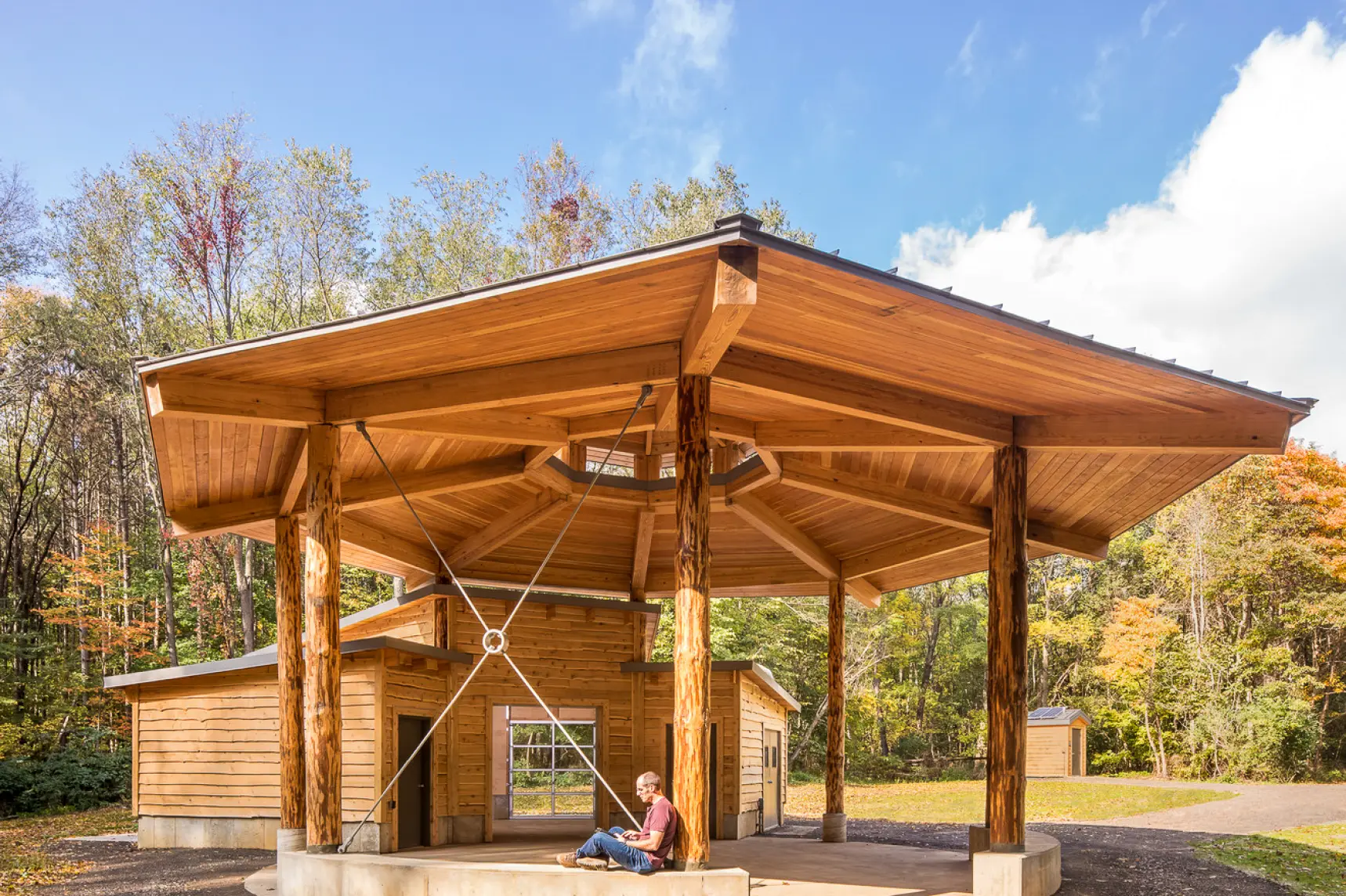
Photo: Jonathan Hillyer
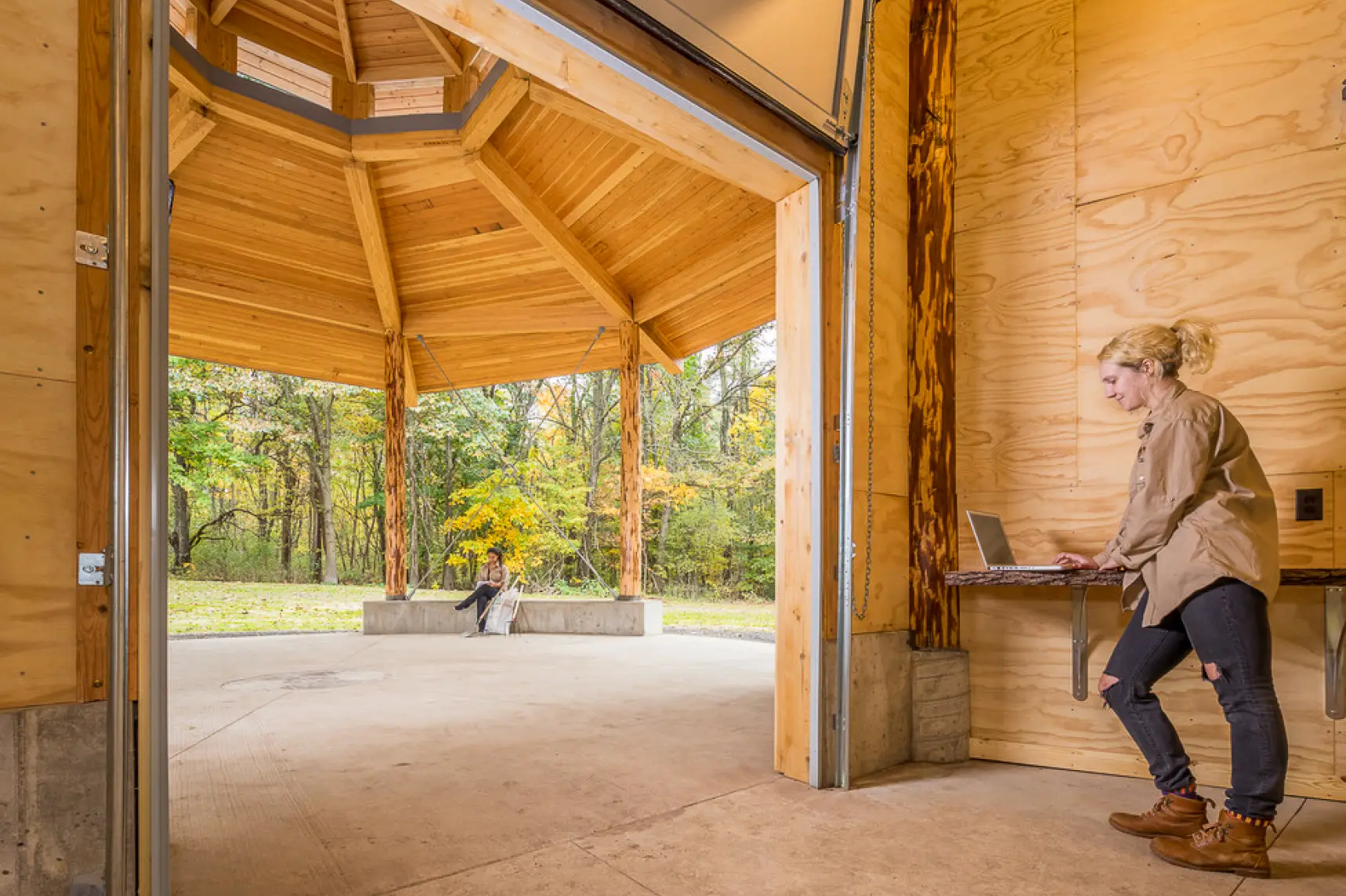
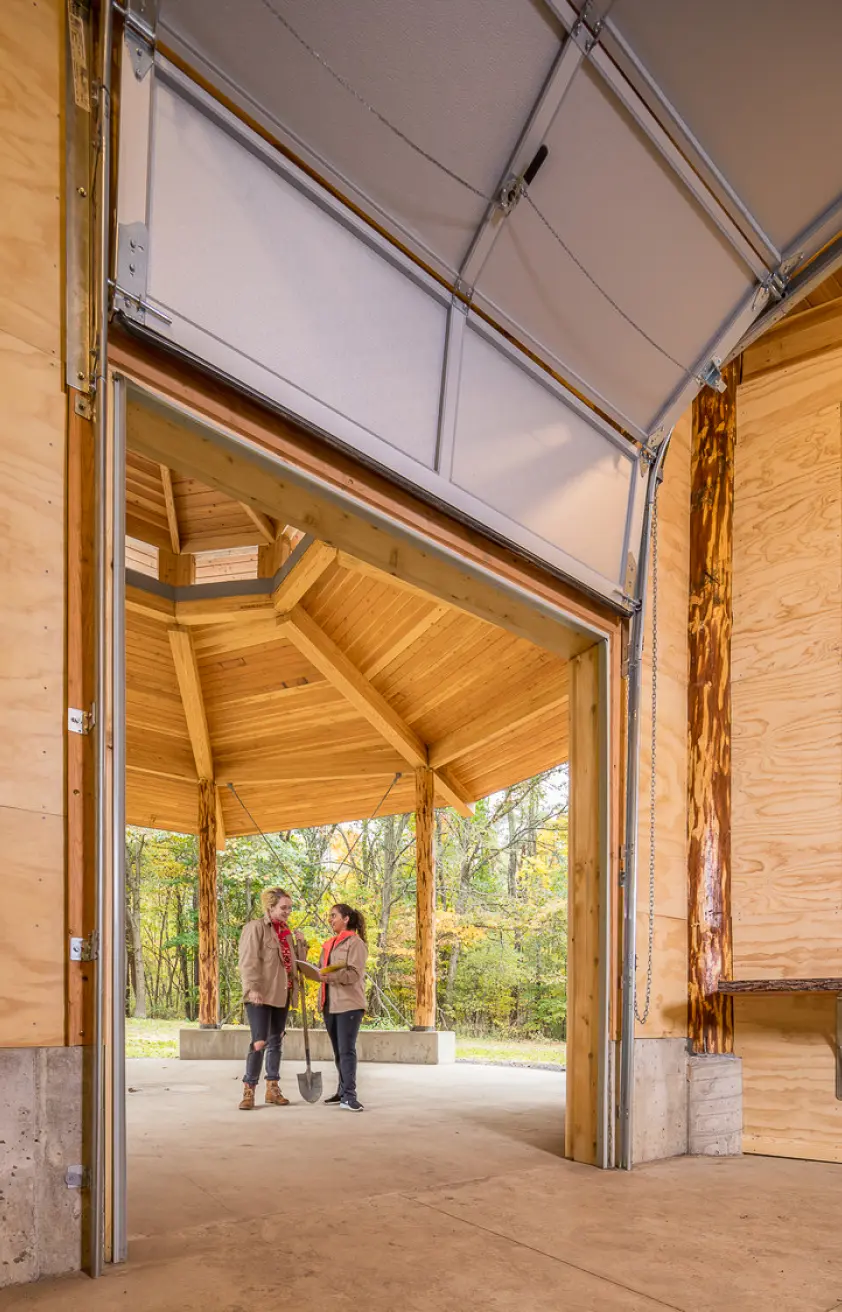
Photo: Jonathan Hillyer
"That overarching goal, to connect people with nature so that they will work to conserve and protect it for future generations, has guided the whole vision, design, and execution of this Pavilion Project."
— E. Binney Girdler, Professor of Biology & Co-Director of Environmental Studies Program
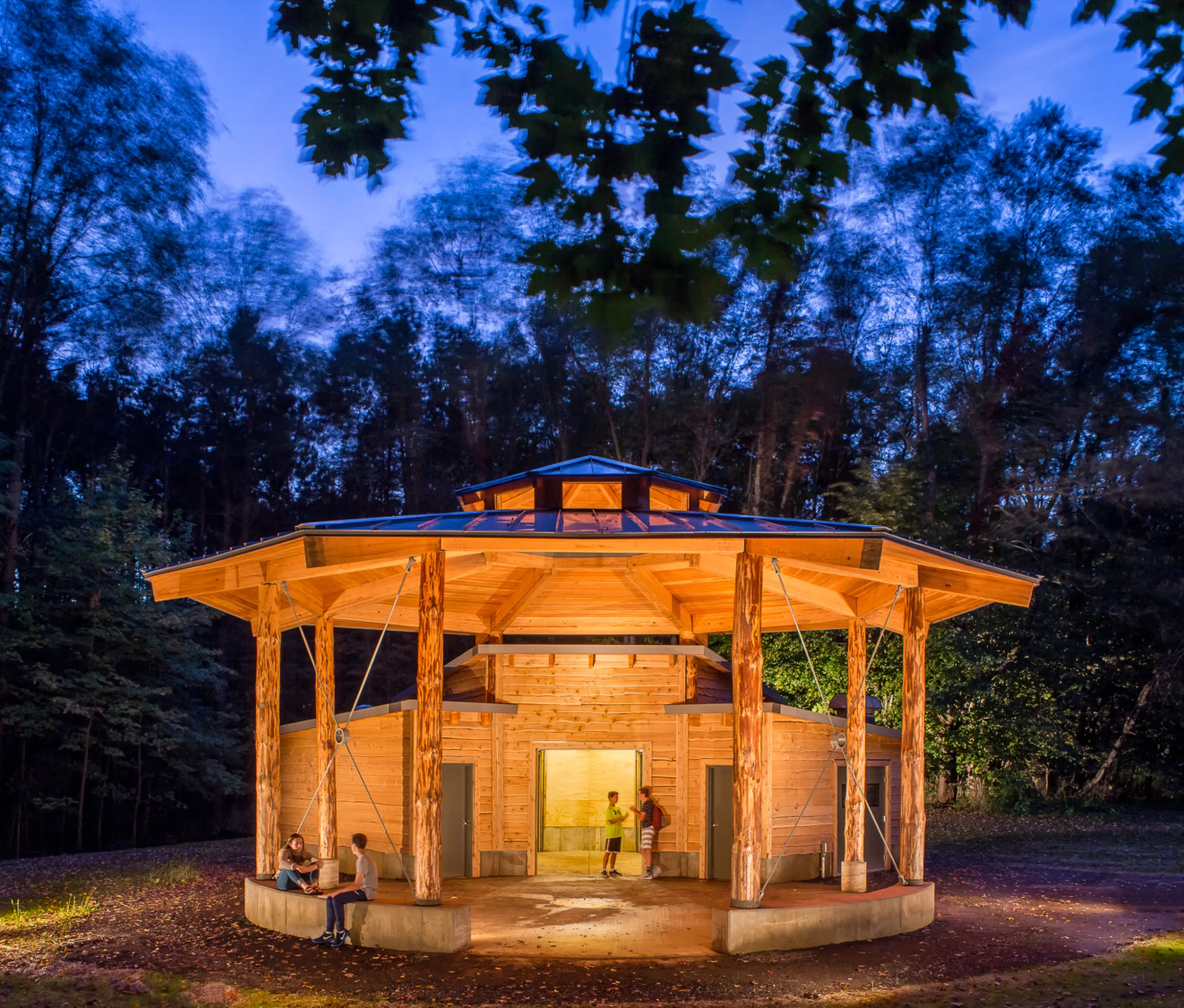
Photo: Jonathan Hillyer
The team used design to acknowledge indigenous cultures for Batts Pavilion, which is located on the ancestral lands of the Pokagon Band of the Potawatomi. The off-grid educational pavilion was inspired by the traditional Potawatomi wigwam, round in form and opening to the east with a central fire pit.
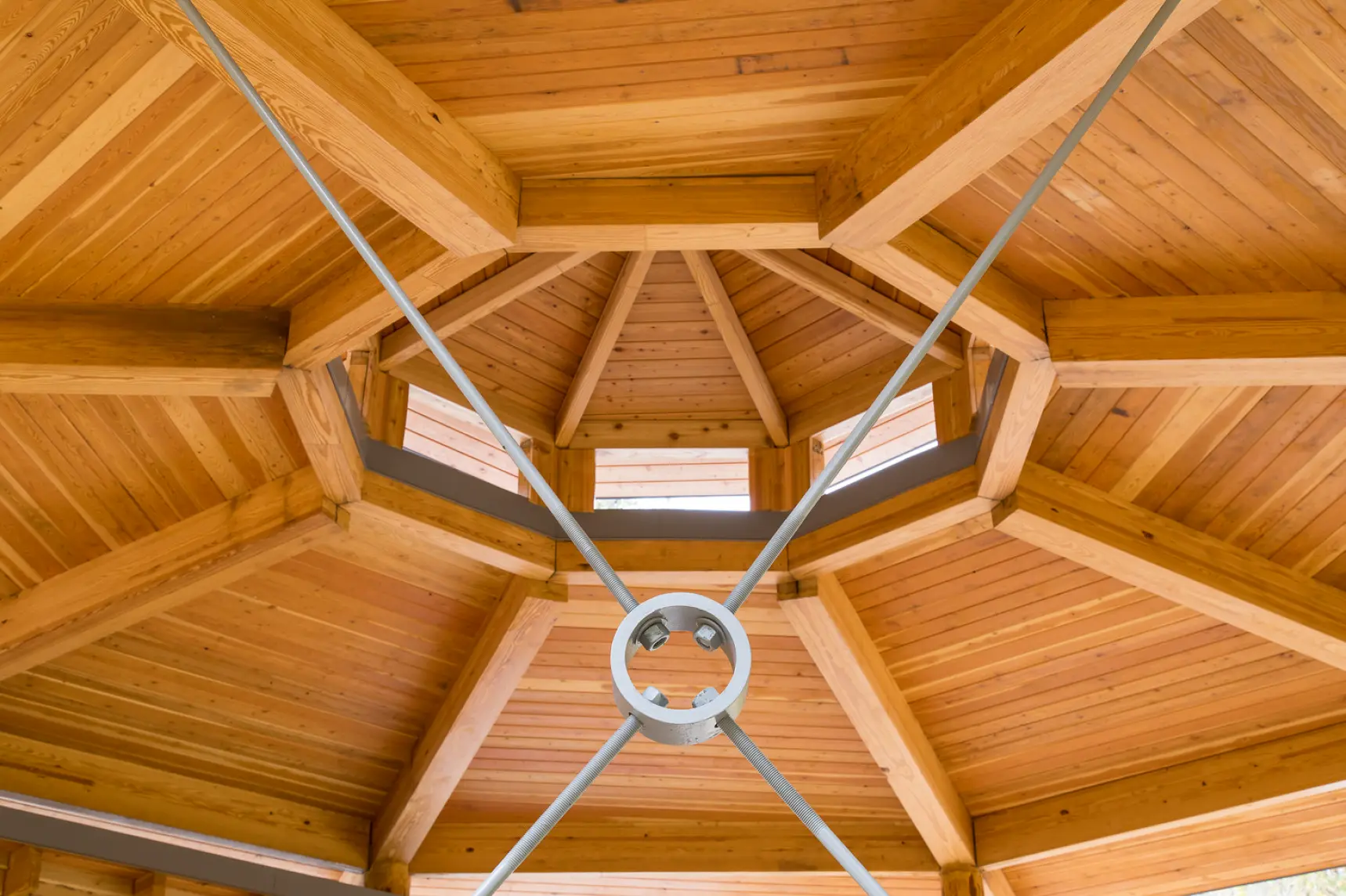
Photo: Jonathan Hillyer
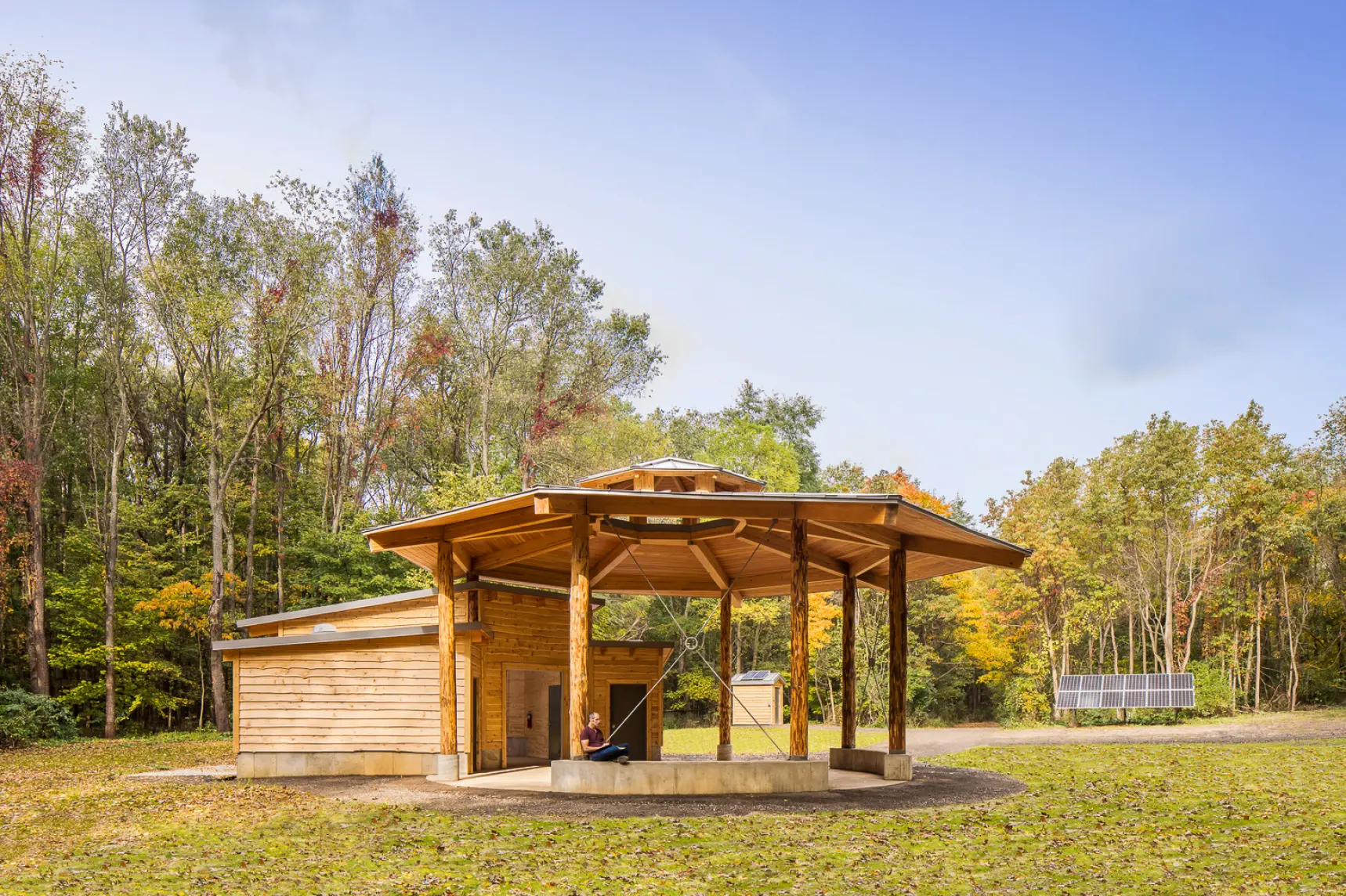
Photo: Jonathan Hillyer
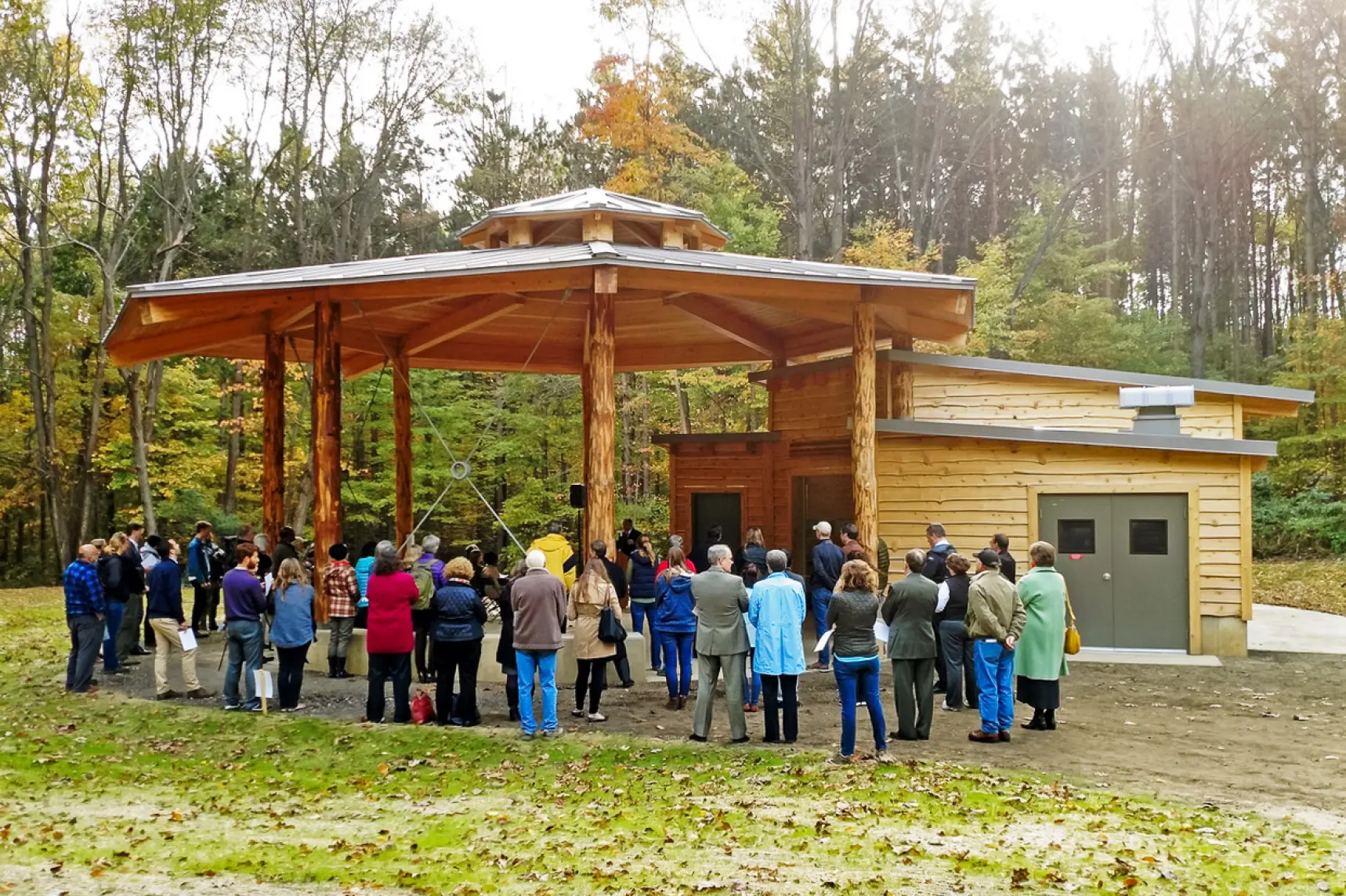
Photo: Lord Aeck Sargent